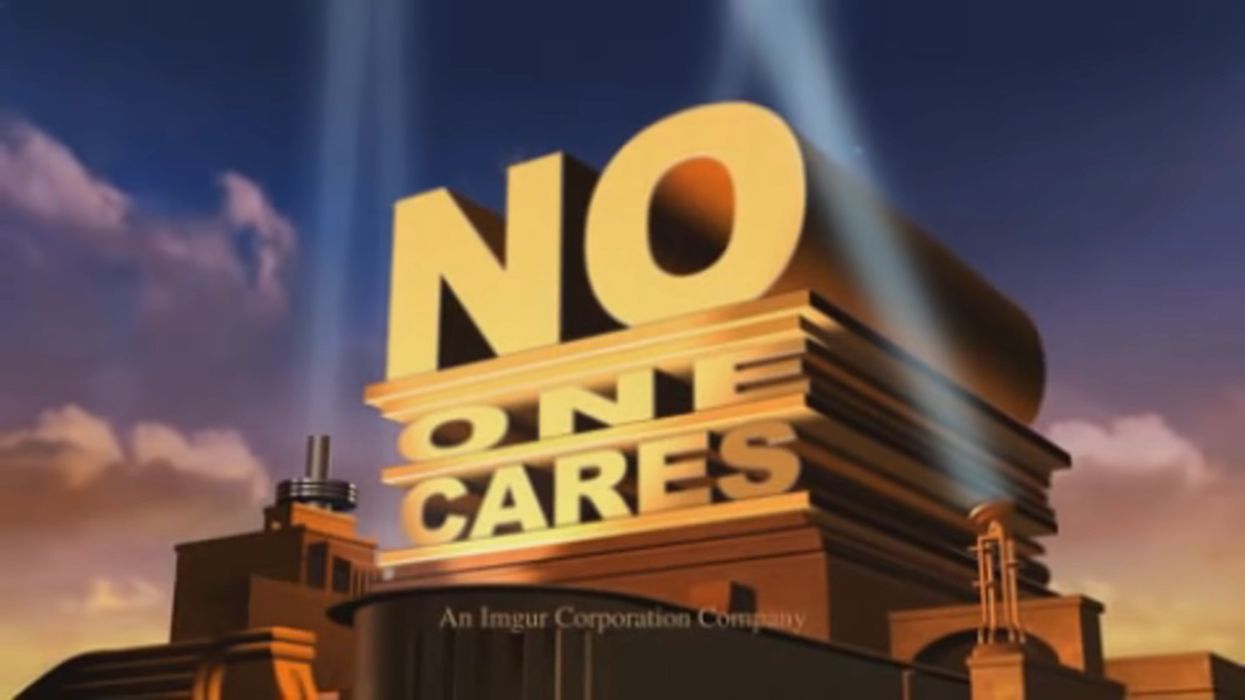Oscar Ratings Have Hit a Historic Low Because Fewer People Care
Is this a pandemic-created blip, or a part of a larger trend?

The Academy Awards grew over time into a must-see television event, but as the television event hit all-time lows this year, a few questions loom. Mainly, who had the best red carpet look?
Just kidding. We're here to talk about this drop-off in viewership, and what it might say about the general state of the relationship between the film industry and itself. Because one thing the Academy Awards has less and less to do with is audiences.
First, let's consider the data from CNN. In doing so, we should also acknowledge that the Nielsen ratings are a horrible arcane method of measurement. But it is at least a consistent metric we have over time.
The 2021 event drew an average of 9.8 million viewers, 58% lower than last year's previous lowest-rated ever, which was at 23.6.
\u201cWe all expected Oscar ratings to be low, but just how low they are is jaw dropping: fewer than 10 million viewers. The previous "all time low" in viewership for an Oscar show was 23.6 million. This year was only 9.85 million.\u201d— Will Mavity (@Will Mavity) 1619458732
Things went from bad to worse. The heavy caveat being this was not the best two-year stretch for movie-going... in fact, it might be the worst. Which is obviously a huge part of these low ratings.
But a strong counterargument could be made... wasn't this the year that everyone should have had the easiest time watching all nominated films? They were all available to stream, and everyone's been at home. Many people are still at home, so why not tune in to the Oscars?
All award show ratings have dropped during the pandemic, CNN points out. Another factor is that this was a year plus of smaller releases.
But it's not just about this year. It's a trend. Check out this chart from Statista.com:

Over the last few decades, in terms of box office revenue, best picture winners have absolutely plummeted.

Just note how much more money the winners to start the aughts brought in than the movies of recent years did. And also, ignore the fact that 2020-2021 have pandemic impacted data. 2016-2019 all reflect a sharp drop.
The last winner to gross over $100 million was Argo in 2013.
Box office numbers have declined in general. People stream more content. But the entire business model is changing.
This leads us to the all-important question:
Are the Oscars becoming a niche within a niche?
These sorts of questions often lead us to conversations about how to fix the Oscars, which is like treating the symptom and not the disease.
The disease is more related to how movies are marketed, who they are made for, and the relationship between the industry at large and the audiences around the country.
In a sense, the Academy Awards are suffering their own predestined fate. It's becoming entirely insulated and incestuous. It's an extended public act of self-celebration. The people getting the awards and up for them are... the people voting.
How can audiences hope to feel connected? They can't, because they're not. The Oscars are the industry's way of telling you who to watch, what to like, and what was good. It's essentially another marketing platform, and the money spent on it reflects that.
Awards for movies are always subjective. But if there were public awards based on either critics' votes, like say the way sportswriters choose an MVP in a sports league, it would feel slightly more separated from what the very same businesses are trying to promote.
While there could be some interest in knowing what player in a league the other players and owners and managers think is the best, it's again, an internal process.
Audience awards are also an interesting idea.
Of course, the Golden Globes are an example of a non-industry group handing out awards, and they're no model of behavior on any level at all.
Have we fallen into the trap of trying to fix the Oscars?
Sort of. The Oscars are unfixable. The reality is, they will likely continue to decline in viewership for a myriad of reasons. Feature films and the feature film industry need to connect to younger viewers and larger audiences in different ways. The internal process of rewarding specific films and filmmakers is not terribly interesting to people. It will not make a comeback.
The great thing about this year's Oscars was that the Academy diversified in its nominees and winners. It set a bunch of long-overdue historic benchmarks. There is of course a very good chance many people take the absolute wrong lesson from the decline in numbers and think it's proof that audiences care less about female filmmakers or diverse voices. That's far from the truth, and there is tons of data to prove it.
It's more about the sheer glut of content available to people. The reality is, Emerald Fennell and Chloé Zhao are far more likely to hit bigger audience numbers when they get their hands on existing IP. Whether we like it or not. That's how you hit more eyeballs these days.
If this internal process of self-award is how the entertainment industry develops its own talent to then hand over larger properties, it could almost be seen as a minor league system. Are the Oscars... the minor leagues?
Probably not the right metaphor. But the reality is, the Academy Awards' impact on the culture at large is dwindling. Fewer people see these movies, and fewer people see these awards shows. The most important art will never be measured by awards or box office numbers or even how many people appreciate it.
Wait... then what exactly does measure the value of quality of art?
I have my thoughts. But what are yours? Leave them in the comments.
Source: CNN












